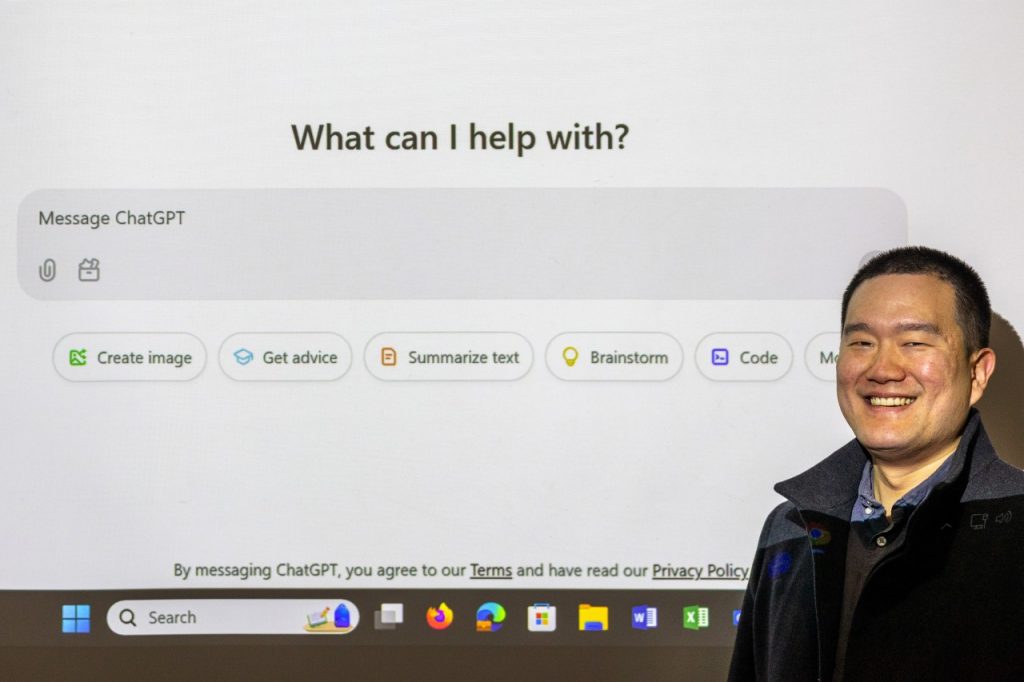The integration of generative AI tools such as ChatGPT and Microsoft's Copilot into higher education curriculums is rapidly advancing, yet a recent study from Virginia Tech highlights a significant "AI divide" between STEM and non-STEM students. This divide underscores the need for targeted university policies and educational programs to ensure equitable access and understanding of these technologies across all disciplines.
Disparity in AI Usage
The study reveals that while STEM students are increasingly harnessing the capabilities of AI tools for academic tasks, their non-STEM counterparts are lagging behind. This disparity raises concerns about an uneven playing field in terms of academic performance and future career opportunities. The report calls for universities to develop tailored strategies to bridge this gap, ensuring that all students, regardless of their field of study, can benefit from AI advancements.
Ethical Use and Over-reliance Concerns
As AI tools become more prevalent in educational settings, the ethical implications of their use have come to the forefront. The Virginia Tech study suggests that without appropriate guidelines, there is a risk of over-reliance on AI, which could undermine students' ability to engage in critical thinking and deeper learning. Faculty members have expressed concerns that students might lean too heavily on AI-generated content, potentially compromising academic integrity.
"The challenge lies in finding a balance between leveraging AI for productivity and maintaining rigorous academic standards," the study notes, emphasizing the importance of clear institutional policies. — Virginia Tech Study
Recommendations for Policy and Education
To address these challenges, the study recommends the implementation of educational programs designed to increase non-STEM students' comfort and proficiency with AI technologies. Additionally, it underscores the necessity for universities to establish comprehensive policies that guide ethical AI use. These initiatives are crucial to prevent the widening of the AI divide and to promote an inclusive educational environment where all students have the opportunity to excel.
Originally published at https://news.vt.edu/articles/2025/01/cnre-generative-ai.html
ResearchWize Editorial Insight
AI is revolutionizing education, but not everyone is keeping up.
The Virginia Tech study is a wake-up call for students and researchers. It highlights a growing "AI divide" that could have long-term implications for academic equity and career readiness. STEM students are racing ahead with AI tools, while non-STEM students are left in the dust. This disparity isn't just about tech skills; it's about future job markets and societal participation.
Why does this matter? Universities are at a crossroads. They must decide whether to perpetuate this divide or take action to level the playing field. The study suggests targeted educational programs and policies as solutions. But will institutions act swiftly enough to implement these changes?
Ethical concerns add another layer of complexity. The risk of over-reliance on AI could dilute critical thinking skills, a cornerstone of higher education. Students and researchers must question how AI is integrated into learning and whether it enhances or hinders intellectual growth.
This study isn't just about AI in education; it's about the future of learning itself. Will universities rise to the challenge, or will they let the AI divide widen? The answer will shape the next generation of thinkers and innovators.
Looking Ahead
AI Education: A Critical Juncture
We stand at a pivotal moment in educational history. The rapid integration of AI into university curriculums is not just a trend; it’s a seismic shift. But here’s the kicker: if we don’t act decisively, we risk entrenching a technological caste system within academia. The Virginia Tech study is a wake-up call. The divide between STEM and non-STEM students in AI literacy is not just an educational oversight; it's a societal risk.
1. Universal AI Literacy Courses: Every student, regardless of their major, should have access to foundational AI literacy courses. These aren’t just electives; they should be core components of every degree. If AI is to be the language of the future, fluency is non-negotiable.
2. Cross-Disciplinary AI Labs: Universities must establish AI labs that foster collaboration between STEM and non-STEM students. Imagine philosophy students working alongside computer scientists to tackle ethical dilemmas in AI. This isn't just beneficial; it's essential for holistic education.
3. Dynamic Curriculum Overhauls: Curriculums need to be as agile as the technology they aim to teach. Static syllabi are relics of the past. We need real-time updates and adaptive learning modules that keep pace with AI advancements. What happens if curriculums lag behind the tech they aim to teach?
4. Ethical AI Frameworks: Institutions must develop robust ethical guidelines for AI use. This isn’t about stifling innovation; it’s about safeguarding integrity. How can we ensure that students are not just consumers of AI but responsible stewards?
5. AI Mentorship and Support Networks: Establish mentorship programs where AI-savvy students guide their peers. This peer-to-peer model not only democratizes knowledge but also fosters a community of learning and innovation.
6. Regulatory Involvement: What if regulators fall behind? The educational sector must work hand-in-hand with policymakers to ensure that AI education is aligned with legal and ethical standards. Proactive regulation is key to preventing misuse and ensuring equitable access.
The Path Forward
The stakes are high. Will universities rise to the challenge and transform their educational models, or will they cling to outdated paradigms? The future of AI in education is not just about technology; it’s about creating a society where everyone has the tools to thrive. The time for action is now.
Originally reported by https://news.vt.edu/articles/2025/01/cnre-generative-ai.html.
Related Articles
- President Trump signs executive order boosting AI in K-12 schools
- Stanford Research Hub to Focus on AI for K-12 Education
- MinerAI: Missouri S&T’s new initiative for AI research, collaboration and resources
📌 Take the Next Step with ResearchWize
Want to supercharge your studying with AI? Install the ResearchWize browser extension today and unlock powerful tools for summaries, citations, and research organization.
Not sure yet? Learn more about how ResearchWize helps students succeed.

